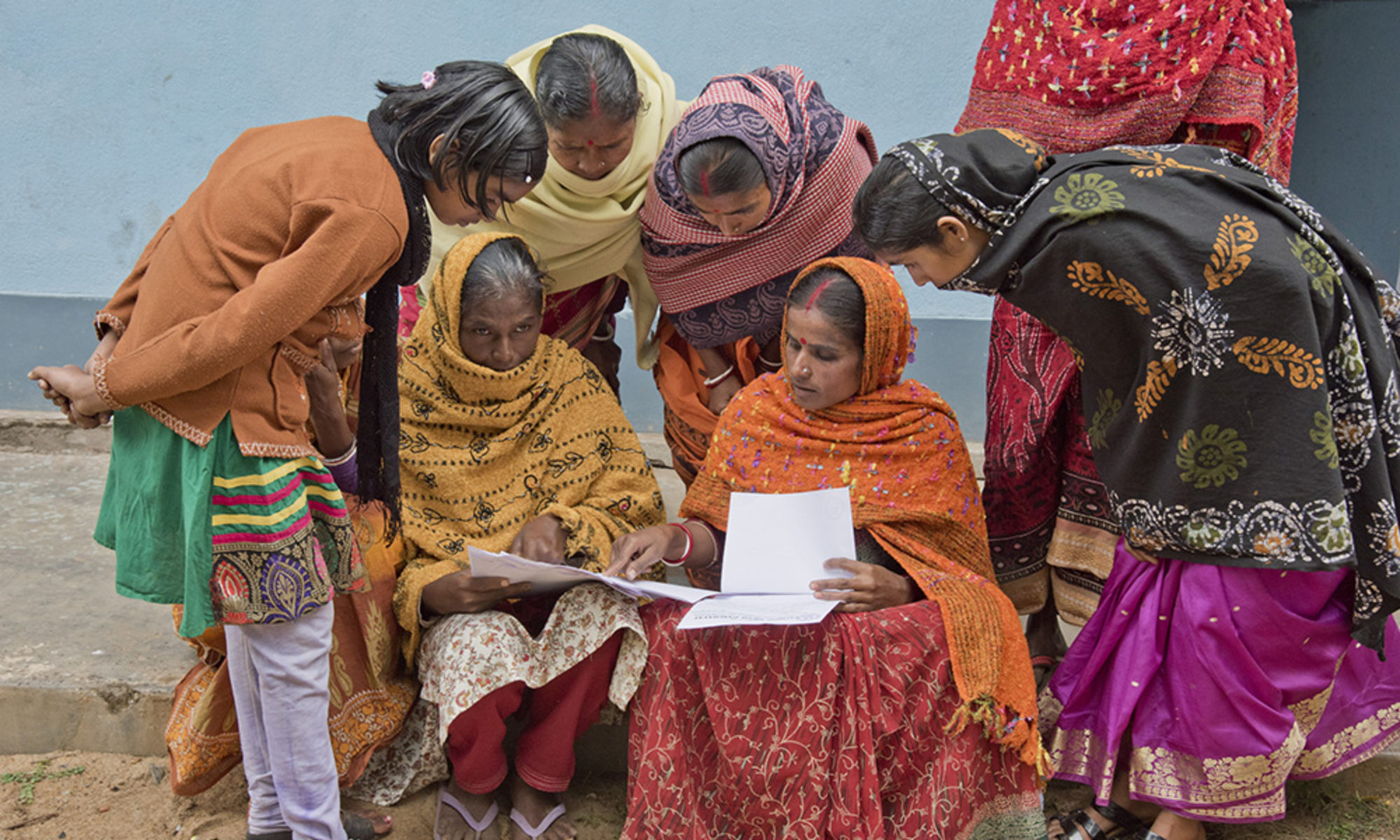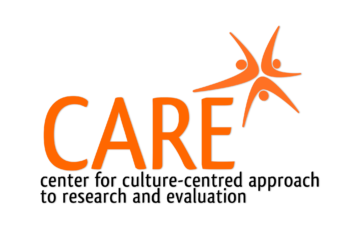CARE-JVBU PROJECT: VIOLENCE PREVENTION NEEDS IN DIVERSE COMMUNITIES
The Center for Culture-Centered Approach to Research and Evaluation (CARE) at Massey University will use the Culture-Centred Approach (CCA), a framework for culture-based engagement, to dialogue with the targeted diverse communities (disabled people, older persons, rainbow communities, and new migrants) to
- identify existing community needs in the context of primary prevention of family violence and sexual violence;
- identify community-driven solutions based on these needs; and
- create a national action plan for violence prevention for the target communities based on community voice.
CARE’S COVID19 PROJECTS
Experiences with COVID19 among gig workers
Recent studies reveal that gig workers face fundamental threats to their health and wellbeing amidst large-scale transformations in neoliberal economies. However, the growing body of research on the challenges experienced by gig workers has not really attended to the health challenges constituted by the gig economy. This study examines the ways in which gig workers are negotiating their work, health and wellbeing amidst COVID19.
The study is designed
- To comprehend the ways in which gig workers are experiencing COVID19.
- To understand how gig workers are negotiating COVID19.
- To explore the solutions to COVID19 imagined by gig workers.
The study will draw on the culture-centered approach to examine the meanings of COVID19 and its negotiations among gig workers. The Culture-Centered Approach (CCA) deals with subaltern classes who have been subdued and absent in dominant theories and models (Dutta, 2011). The findings of this study aim to create healthy and safe work environments for gig workers, through in-depth interviews and advisory group meetings.
For this study, the researcher will be recruiting participants who are working in the gig economy. An information sheet will be shared with the participants. The study involves in-depth- face to face interviews with up to 500 participants and is expected to last 60-90 minutes. Recruitment of participants of the study will be done using purposive and snowball sampling, mostly carried out digitally to begin with. Interviews will be conducted mostly on digital platforms and will be recorded. Interviewees will be asked about the issues faced by them at their workplace, about their understanding and negotiation of health and wellbeing in daily lives, their challenges with COVID19, and the ways in which they negotiate these challenges. The interview will be transcribed for analysis. A summary of the findings will be made available to the participants upon request.
Experiences with COVID-19 among low-income households
CARE’s research project is about the experiences of COVID-19 among low-income households in New Zealand and across the world. The aim of this research is to understand the everyday health experiences that individuals and whānau face whilst negotiating structures of low-income and/or poverty including the potential solutions they foresee in addressing the health challenges. Poverty is included because there are individuals and whānau around the world who self-describe as living in poverty.
GLOBAL MEANINGS OF HEALTH PROJECT
POVERTY IN AOTEAROA NEW ZEALAND
This research project is aimed on health experiences among those experiencing poverty in New Zealand. The aim of this research is to understand how individuals living in poverty in New Zealand seek health, the challenges to health, and the potential solutions they foresee in addressing the health challenges they experience across three site in Aotearoa New Zealand.
- HIGHBURY
- GLEN INNES
- FEILDING
DOCTORAL RESEARCH PROJECTS UNDER CARE DIRECTOR’S SUPERVISION
THEORISING MĀORI HEALTH AND WELLBEING: VOICES FROM THE MARGINS
by Ngā Hau Christine Elers
How do Māori living on the ‘margins of the margins’ in society voice their articulations into the creation of Māori models of health and wellbeing?
A culture-centered approach (‘CCA’) turns to the voices missing from dominant
communicative spaces and builds infrastructures for listening and co-creates platforms
for voice (Dutta, 2008). Underpinning the co-creation of platforms for voices to emerge into mainstream spaces, is the recognition that voice erasure is built into the very notion of health communication (Dutta, 2018).
Configured as ‘top-down’ communication approaches, Māori have been the ongoing target of health communication campaigns to arrest high morbidity and mortality rates that constitute a humanitarian crisis (Whānau Ora Commissioning Agency, 2019). Health communication messages are often deployed that deny the knowledge production and agentic capacity of Whānau by serving culturally-laden health messages to conform the behaviour of individuals and Whānau, without critiquing the myriad of structural inequalities embedded into New Zealand’s public health system.
The CCA is an approach to social change communication by de-centering expert modelling
enshrined within the ideology of neoliberalism (Dutta, 2020). The CCA calls into question
dominant health approaches that erase the voices for whom health campaigns and services are designed for and can offer co-created strategies towards social change communication ensconsed in Whānau and community voice.
EXPLORING MEANINGS OF HEALTH AND WELLBEING AMONG MIGRANT INDIAN NURSES IN NEW ZEALAND USING A CULTURE-CENTERED APPROACH
by Pooja Jayan
Nurses arguably are one of the most significant lifelines of the global health labour force. Nurses are fundamentally associated with New Zealand’s health priorities and better health for all people. Like other developed nations New Zealand requires Internationally Qualified Nurses (IQNs) to fill shortages in the healthcare sector. Recent studies reveal that IQNs are increasingly migrating from Asian countries to developed countries and are younger. However, there are reports of many IQNs going through racism and cultural scrutiny in New Zealand. It is observed that workplace violence is on the rise in New Zealand and bullying among nurses is found to be higher than other health workers.
Research indicates that the work environment of nurses consists of physically and psychologically draining tasks, while that of IQNs is often marked by discriminatory approaches. In the stressful and under-resourced milieu that IQNs work in , workplace issues can result in damaging outcomes. Hence, it is necessary to explore the experiences of IQNs in the healthcare sector.
Through the lens of a Culture-Centered approach (CCA), this study focuses on one of the major groups of IQNs in New Zealand, the migrant Indian nurses, by putting forth participatory platforms for voicing their experiences that are currently hidden from major discursive spaces.
CARE’s ANTI-RACISM PROJECT
More information to follow.
CARE’S Ongoing Global Projects
EMPOWER PROGRAMME (Enriching and Mobilising Participation of Whampoa’s Elder Residents)
A collaboration agreement has been reached between Massey University and the Tsao Foundation, via Massey’s Center for Culture-Centered Approach to Research and Evaluation (CARE) and the International Longevity Centre Singapore (ILC-S). The two parties will work together on the $0.9M SGD, programme, largely funded by the National Council of Social Service Singapore, while CARE and ILC-S will co-fund the balance across from January 2019 – December 2021.
EMPOWER programme (Enriching and Mobilising Participation of Whampoa’s Elder Residents) by jointly implementing the culture-centered approach (CCA) based activities and achieving the stated key performance indicators for the EMPOWER programme.
The collaboration is co-funded by CARE Massey University, Tsao Foundation and the National Council of Social Service (NCSS) Singapore. EMPOWER adopts the culture-centered approach developed by CARE director Professor Mohan Dutta to build a voice empowerment programme for ageing community members for the Phase 2 of Community for Successful Ageing (ComSA) Community Development programme developed by Tsao Foundation. This is the first application of the culture-centered approach in the context of ageing communities in Singapore.
HEALTH EXPERIENCES OF INDIANS IN MALAYSIA
To understand the everyday experiences of Indian youths in Penang, the challenges to accessing structures of mobility, and the potential solutions to the challenges experienced.
This is a pilot study leading to a broader study on Indians in Malaysia outlining the two key steps for the first phase of the project, involving in-depth interviews and focus groups. The CCA utilizes community-based participatory strategies for building community-based communication infrastructures by emphasizing the central role of the community in defining the problem and corresponding solutions.
The goals of the interview at the community level are to understand the everyday experiences of Indians in Penang, the everyday contexts of challenges experienced, and the community imaginations for the negotiation of solutions. In-depth interviews are typically conducted with 100-150 members in a specific national context to understand in more detail their challenges in navigating and accessing resources and the solutions to these challenges.
The goals of the 10-15 focus groups are to follow up on the findings of interviews to discuss the resources and services needs of the community at a group level, thus creating a collaborative space for open dialogue and discussion, and therefore, bringing forth an open climate for sharing knowledge, developing collective understandings of problems facing community members, and developing solutions for these problems.
HEALTH ROHINGYA PROJECT IN SOUTH EAST ASIA
The project objective is to understand the health experiences of Rohingya refugees in Southeast Asia based on a collaboration with the Asia Centre based on the Culture Centered Approach (CCA) framework of CARE.
The CCA utilizes community-based participatory strategies for building community-based communication infrastructures by emphasizing the central role of the community in defining the problem and corresponding solutions (Dutta, 2008; Viswanathan, Ammerman, Eng, Gartlehner, Lohr, Griffith et al., 2004). The methodological tools of the CCA, (a) listening, (b) dialogue, and (c) participation generate key concepts and infrastructure design solutions through the conversations between communities and other key stakeholders.
The goals of the interview at the community level are to understand the health needs of Rohingya refugees, the everyday contexts of health, and the community imaginations for the design and delivery of health solutions. In-depth interviews are typically conducted with 40 members in a specific national context to understand in more detail their challenges in navigating and accessing health and the solutions to health. Depending on the national context, the 100-150 members are selected from 3 to 5 different geographic communities.
The goals of the 10-15 focus groups are to follow up on the findings of interviews to discuss the health resources and services needs of the community at a group level, thus creating a collaborative space for open dialogue and discussion, and therefore, bringing forth an open climate for sharing knowledge, developing collective understandings of problems facing community members, and developing solutions for these problems. Focus groups members are recruited by the advisory group, attending to the conceptual framework of the CCA, and therefore ensuring that the most marginalized voices from the community are represented.
HEALTH EXPERIENCES OF PUNJABI COMMUNITIES IN INDIA
The project objective is to understand the health experiences of Punjabi communities threatened by a mining operation in India. The CCA utilizes community-based participatory strategies for building community-based communication infrastructures by emphasizing the central role of the community in defining the problem and corresponding solutions.
The goals of the interview at the community level are to understand the health needs of Punjabi communities in the context of a mining operation, the threats to health, the everyday contexts of health, and the community imaginations for the design and delivery of health solutions. In-depth interviews are typically conducted with 40 members in a specific national context to understand in more detail their challenges in navigating and accessing health and the solutions to health.
The goals of the 10-15 focus groups are to follow up on the findings of interviews to discuss the health resources and services needs of the community at a group level, thus creating a collaborative space for open dialogue and discussion, and therefore, bringing forth an open
climate for sharing knowledge, developing collective understandings.
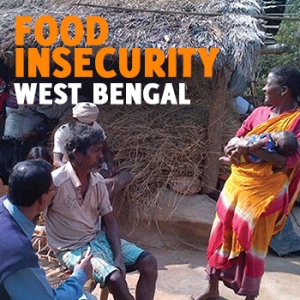
Stories of hunger are shared by community members through in-depth interviews, focus groups, and advisory board meetings. This project aims to identify the underlying problems that result in food insecurity and seeking to work toward grassroots solutions that address these underlying problems.

FOREIGN CONSTRUCTION WORKERS – SINGAPORE
Low-wage migrant workers in the construction industry form a vulnerable segment of Singapore’s population. This group faces many problems, including adjustment to a foreign environment, poor living conditions, and exploitation by employers. These problems lead to a whole host of health issues such as inaccessibility to health care. This research aims to create opportunities to work with foreign construction workers to solve the health issues that they face. Problems are identified and solutions are developed by migrant workers themselves.
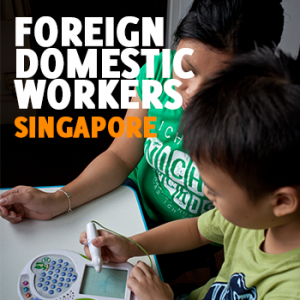
FOREIGN DOMESTIC WORKERS – SINGAPORE
We engage foreign domestic workers (FDW) in dialogue via in-depth interviews and focus groups in order to co-construct their experiences of living and working in Singapore, especially in the context of health and health care. These experiences will help to open up participatory spaces in national discourse, so that relevant policies and interventions can be developed.
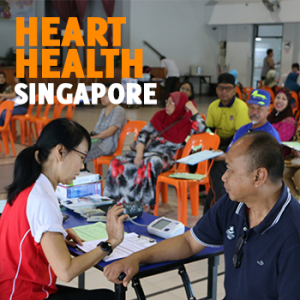
This project engages groups in Singapore who are especially vulnerable to cardiovascular disease to highlight the voices of the community in developing culturally-centered health promotion methods and materials.
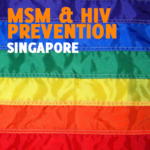
MSM & HIV-PREVENTION – SINGAPORE
The lived sexual experiences of men who have sex with men (MSM) in Singapore form the basis of culturally-grounded knowledge which will be used to develop relevant, community-based interventions for HIV prevention and safe sex promotion
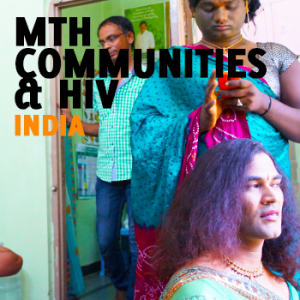
This CARE project will work with MSM, Transgender and Hijra (MTH) communities to understand meanings of health and develop a communication campaign to address the health needs of the community members, along with our partner HIV/AIDS Alliance, Andhra Pradesh.
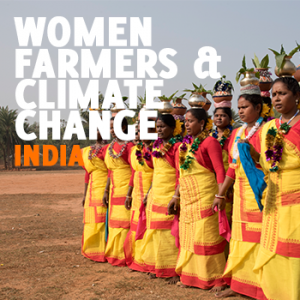
WOMEN FARMERS & CLIMATE CHANGE – INDIA
Although several studies argue that small-scale poor rural agriculture women farmers are most vulnerable to climate change, and therefore need to adapt urgently, few studies seek to explore how women farmers perceive climate change, and what adaptation strategies they prefer. Working with Deccan Development Society women farmers collectives, called Sanghams, this project seeks to foreground women farmer’s experiences and solutions to climate crisis. This project acknowledges the important role that traditional knowledge can play to adapt to the climate and developmental crisis.
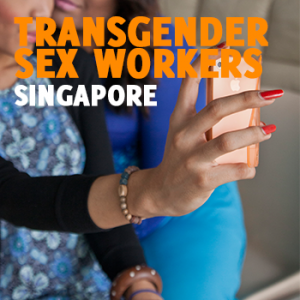
TRANSGENDER SEX WORKERS – SINGAPORE
There are limited communication interventions that are serving the transgender community, especially in the context of Singapore. Despite some prevention programs that have proven to be effective for some, many of such programs are not sustainable due to their top-down approach. This project aims to engage the local transgender sex workers to identify the health problems they experience and to develop interventions that correspond to their health needs.
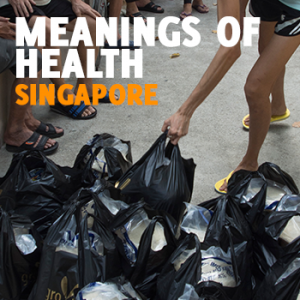
MEANINGS OF HEALTH – SINGAPORE
Health meanings emerge from the lived experiences of the individual as he/she navigates through socio-structural constraints. These individual meanings of health become key information in revealing a localised, alternative understanding of health in the community. The main outcome of this research is to create avenues and develop solutions for more equitable health outcomes in such marginalised communities. Currently, CARE is reaching out to the invisible poor in Singapore to understand their lived experiences of food insecurity and the impact on their health. The team organises a monthly food distribution with resources from the various NGOs that we collaborate with.
